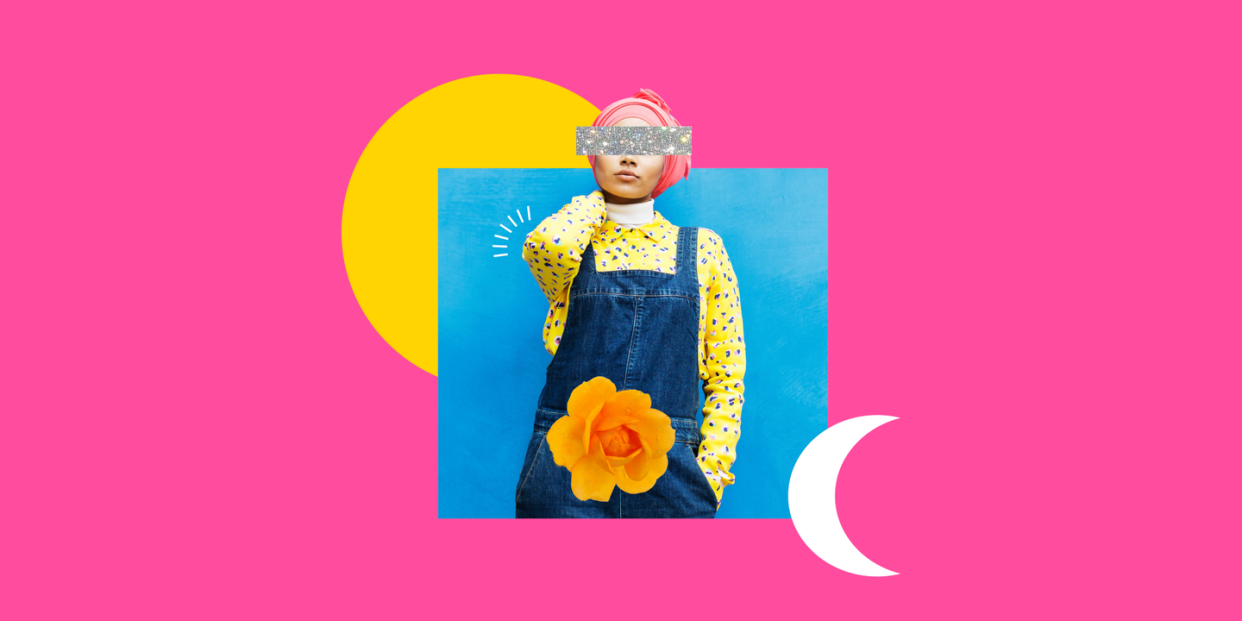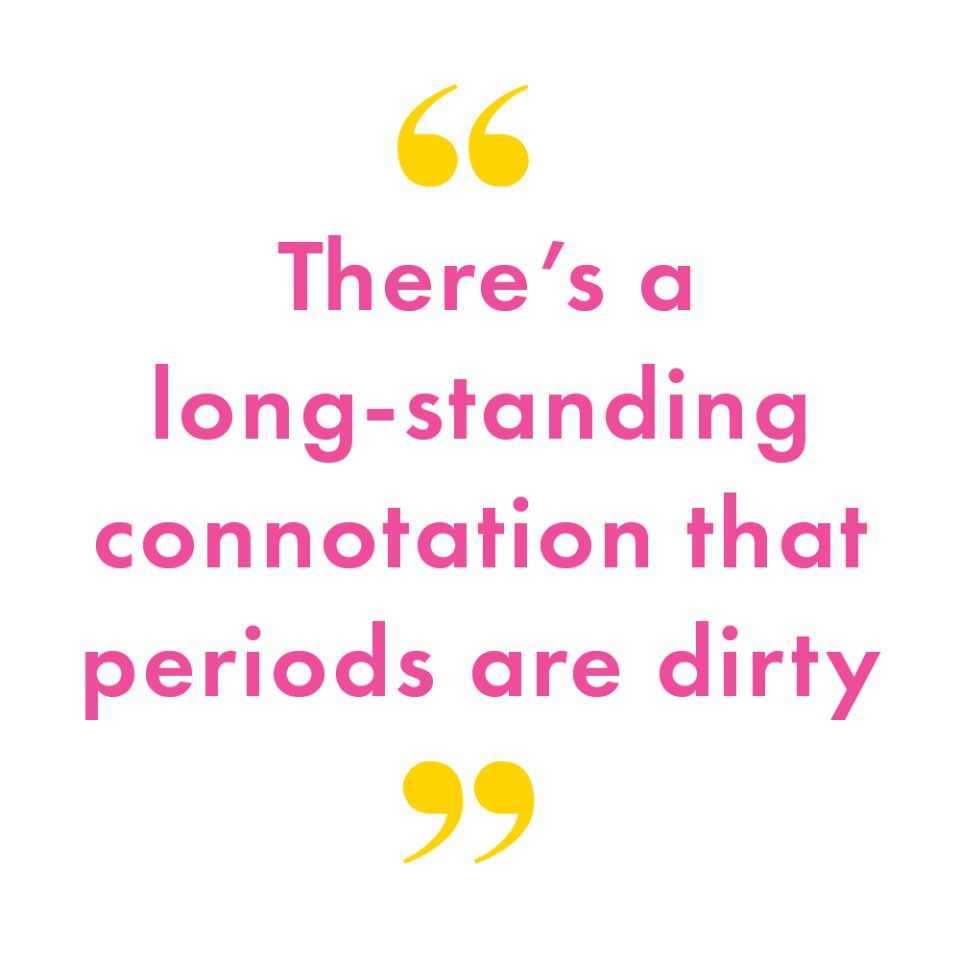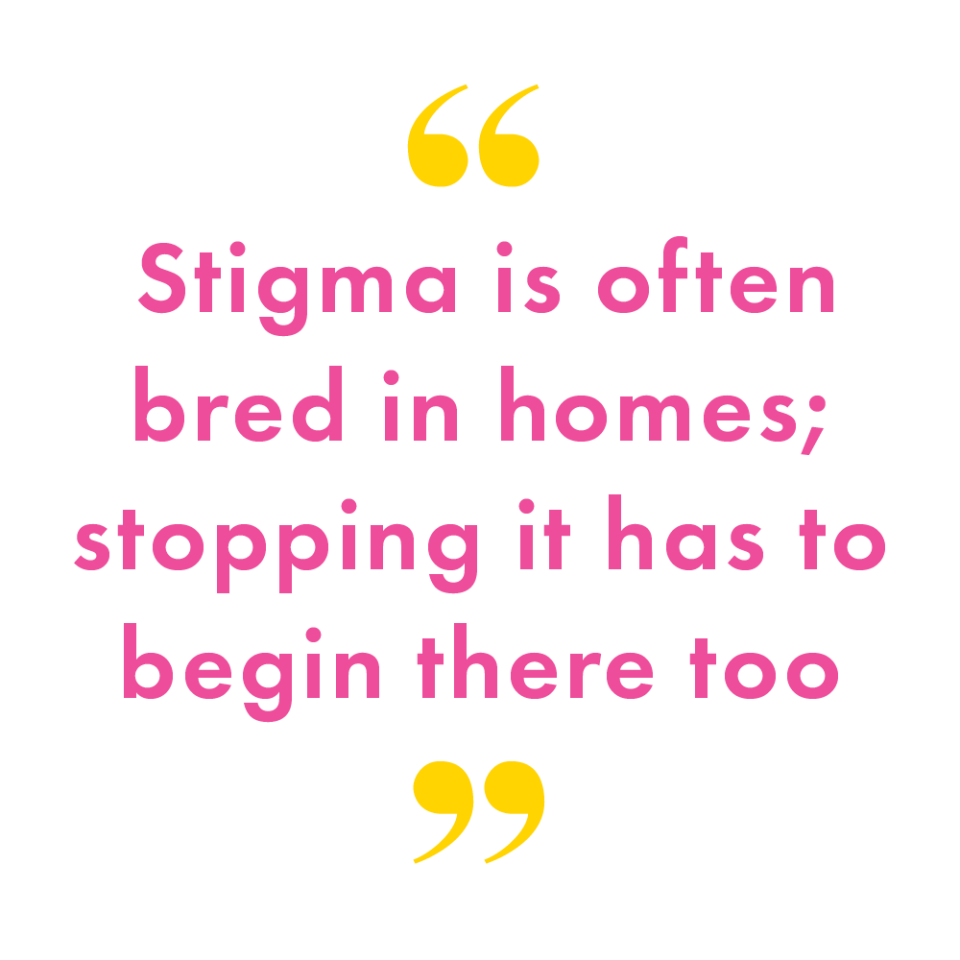The Muslim women who are using Ramadan to tackle the period taboo

Aliya* felt like she was swallowing a rock. This always happened when she ingested food too quickly, but the sun was rising higher in the sky and her family would soon be up, so she had no choice. It was Ramadan, and just hours before, she had joined her family for Suhoor [the meal before sunrise] in an attempt to conceal the fact that she wasn’t actually fasting.
Doing this felt like an unnecessary burden, and she hated it. But hearing her brother trudge down the stairs, she scrambled to wash her bowl anyway, as her uterus twisted and cramped inside her. Aliya was on her period - and she’s just one of many Muslim women who has felt the need to hide the fact she’s menstruating during the month of Ramadan.
Although fasting during Ramadan is compulsory for all adult Muslims, there are a few exemptions. Islamic rulings and Hadiths [sayings of the Prophet Muhammad] contain specific verses that tell Muslim women that their periods mean they’re excused from fasting, as well as praying and reading the Quran. The problem is, in many Muslim communities, openly talking about your periods is heavily frowned upon.
In my household, I’ve always been very open about my ‘time of the month.’ Perhaps it was because my dad was a doctor, or maybe it was because my eventual diagnosis of endometriosis gave me the opportunity to be so candid about what was going on. But nonetheless, my dad and brothers were aware. They knew when I was bleeding, and the specific brand of pads I needed them to pick up for me on their way home. This meant that during Ramadan, I never had to explicitly say that I wasn’t fasting. They would get the hint when I didn’t show up at Suhoor, or when they saw me eating during the day.

Elsewhere, however, the taboo surrounding periods can run deep, and is well-embedded across much of society. “There has been a long-standing connotation that periods are dirty, or even shameful, as well as a deep misunderstanding that periods make women and menstruators unpredictable, unreasonable or moody,” Hormone Health Coach, Hayley Merrick, tells me. “It immediately reinforces the impression that periods are unpleasant and something to be embarrassed about.”
In Muslim culture, this is a particularly strong-held belief. “Muslim women are often afraid to talk about their periods openly because they have been taught that they are dirty during this time,” explains Muslim Sexual Health Educator, Angelica Lindsey-Ali. “It makes it difficult to discuss, even in the presence of other women, because they feel as if the period itself renders her a pariah during this time. But this is a cultural teaching and not one of Islam,” she notes.
“Periods can be a time of discomfort, both physically and mentally. Therefore, it’s seen as an allowance and mercy from Allah [God] to not fast during a time in which the body is already going through a process of rejuvenation and renewal,” Lyndsey-Ali adds.
It wouldn’t seem wise to deprive your body of nutrition at a time it’s losing iron and other minerals through menstruation, and medical research appears to support that view. A 2013 study in the Iranian Journal of Reproductive Medicine found that abstaining from food while you’re menstruating can increase the chances of abnormal symptoms, including oligomenorrhea (infrequent menstruation), polymenorrhea (cycles with intervals of 25 days of fewer), and hypermenorrhoea (menstruation with heavy or prolonged bleeding).

For Aliya, the pressure of lying eventually got too much, and she went on to tell her older brother the truth. She was relieved to discover he was very understanding, and that her fears had been unwarranted all along. “I was made to think that if I were to be so brazen about [my period], I would be considered shameless,” she admits. Since that conversation with her brother, it has created an open dialogue around the topic of menstruation in her wider household.
But for many other Muslim women, it’s not that simple. Despite the fact we live in an age where adverts for sanitary pads are commonplace on TV channels, and the school curriculum provides children with a detailed understanding of the menstrual cycle from a young age, it remains difficult for some to approach the topic with such ease. 22-year-old Mariam*, a student from the East Midlands, tells me that despite having lived in the UK her whole life, she and her sisters have always pretended to fast whilst on their periods during Ramadan. “My dad is older and more traditional so he doesn’t really know about periods. We used to have to pretend to be fasting and praying,” she says. “Islamically, these things have been clarified for a reason, because it’s a natural bodily process and it’s nothing to be ashamed about. But that was something I didn’t understand until I was older.” Recently, it’s become a little easier in Mariam’s family, after her mum told her dad their daughters wouldn’t be fasting - and he didn’t ask why.
Sarah Saleem, a 22-year-old medical student from Islamabad, Pakistan, has brothers who are doctors themselves. But despite their technical knowledge of the female reproductive system, she is still expected to hide her menstruation. “You’re supposed to keep it hidden [in Pakistani culture] so no one should find out about it. Even in front of my male friends, I avoid the topic,’ says Sarah. Like many other Muslim women, she is tired of dealing with this stigma. “I feel like it’s about time women accept and embrace it wholeheartedly, and realise that it’s completely okay to openly tell people you’re on your period.’
Sarah isn’t the only one to feel this way; there’s a whole generation of Muslim women who share this belief and lots, like Aliya, are now beginning to talk about it more openly – even if that means approaching it in a delicate way.

“If someone from the community asks why I’m not fasting, I just say, ‘I can't’, 24-year-old Yasmin, a journalist from Manchester, tells me. “If they ask again, I reply, ‘I’m on my cycle’.” Humaira, 26, from Birmingham takes a similar approach. “We have come up with polite ways of addressing the topic to respect people’s customs and make people feel comfortable in their cultural norm. With my dad and brother I can openly say I’m on my period, whereas with my uncle, I might just say, ‘I’m not praying’,” she explains.
Tackling it in this manner is wise, says educator Angelica Lyndsey-Ali, who encourages anyone eager to begin having conversations about their menstrual wellbeing to start small. “It begins in the home. Women can start by having discussions with the women in their families and talking about things such as period symptoms, ways to ease potential discomfort and even preferred choice of hygiene products,” she suggests. “Stigma is often bred and grown in homes. Stopping it has to begin there too.”
Lyndsey-Ali also advises Muslim women not to shy away from questions about why they may not be fasting. “A woman doesn’t have to directly announce that she is on her period. Rather, she can simply reply, ‘My body is already in service to my Lord at this time’,” she suggests. “A response like this helps not only to keep prying eyes out of her business, but it also redirects the conversation to a focus on her relationship with her creator and not the harmful stigma attached to periods,” she explains.
Young Muslim women face a tricky balance of trying to break down outdated misconceptions surrounding the female body, while also being mindful of cultural traditions and avoiding potentially offending older generations. However, it’s important to remember that any firm-set notions about menstruations often stem from cultural beliefs rather than from religion itself - and people need to be educated on this. We need to remind others that Islam in fact encourages women to embrace their periods. If we can start this work within our own communities, then it will contribute a wider understanding and acceptance among all of society that the menstrual cycle is absolutely nothing to be ashamed of.
*Names have been changed.
The latest issue of Cosmopolitan UK is out now and you can SUBSCRIBE HERE.
Like this article? Sign up to our newsletter to get more articles like this delivered straight to your inbox.
You Might Also Like

 Yahoo News
Yahoo News 
